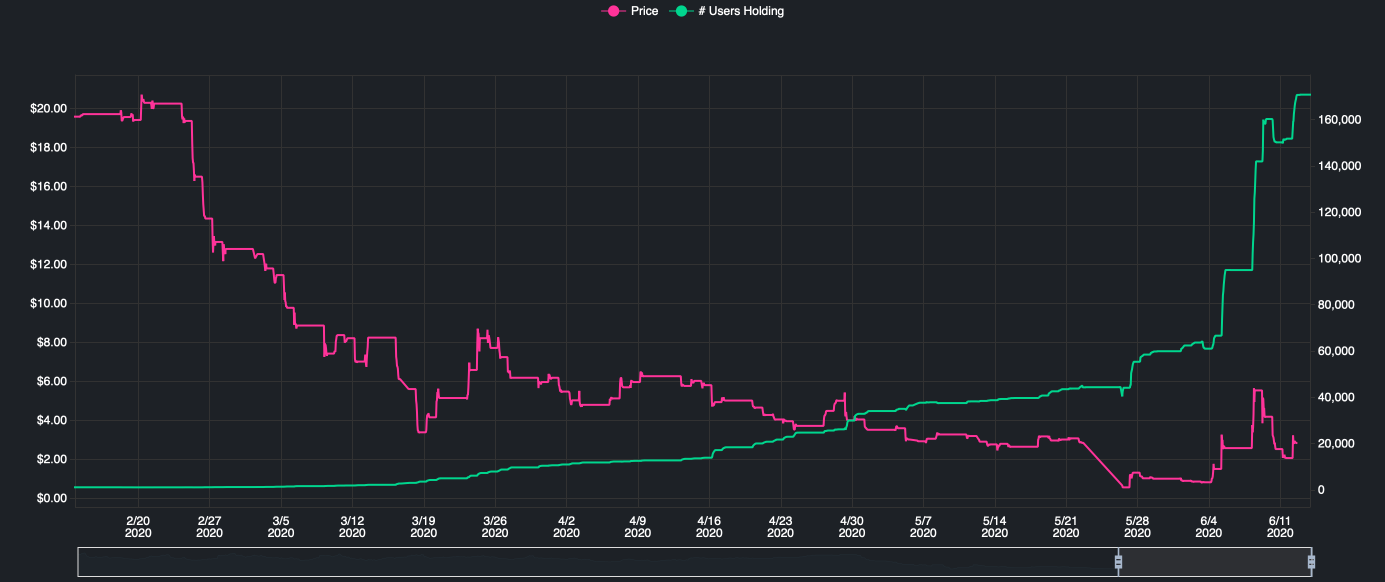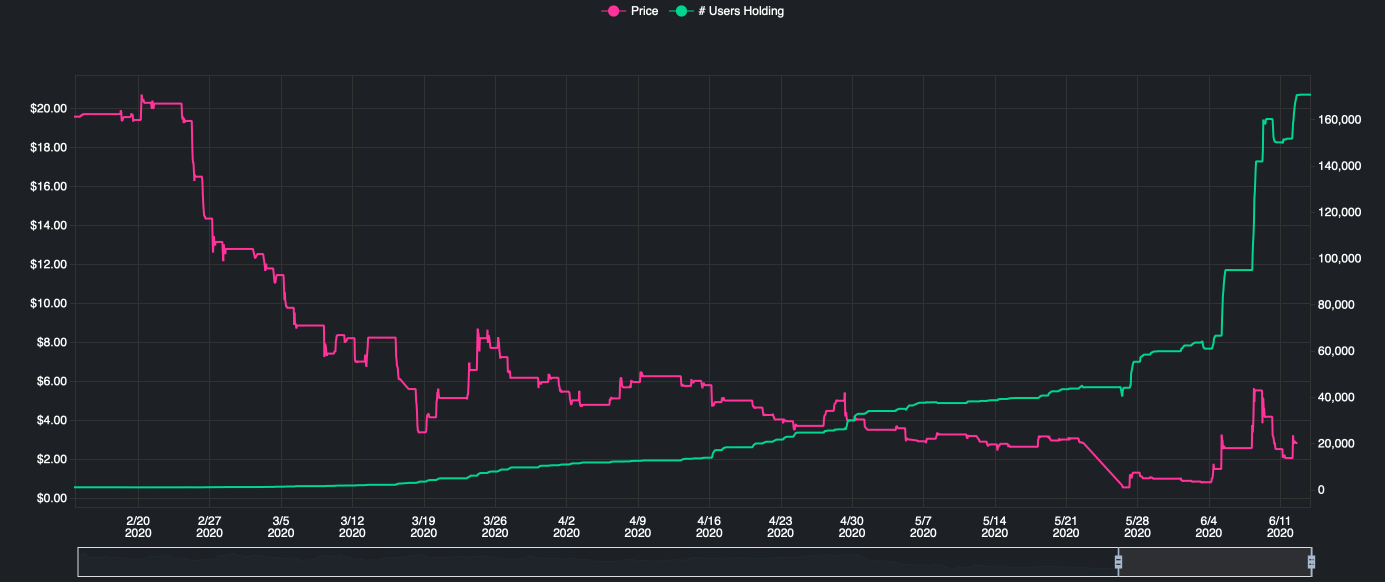
In the nearly four months since the COVID-19 outbreak reached the United States, the market has experienced a historic crash and equally historic recovery. Last week, the S&P 500 closed within 5% of its pre-COVID-19 high and the NASDAQ reached a new all-time high. The market’s bounce has largely been driven by big tech, including stocks in the Cornell Capital Group Quarantine Index, which has dramatically outperformed the market. While tech has outperformed, companies in the travel sector, many of which are included in the CCG Anti Quarantine Index, have largely missed out on much of the market recovery. One member of the CCG Anti Quarantine Index, Hertz Car Rental, has filed for bankruptcy. Typically, bankruptcy is the end of the line for equity investors but for Hertz Global Holdings Inc (NYSE:HTZ) bankruptcy was the beginning of new chapter in the Hertz story.
Hertz Global Holdings' Bankruptcy Announcement
On Tuesday, May 26, the first trading day after Hertz Global Holdings announced it would file for bankruptcy, shares traded as low as $0.55, down from a pre COVID-19 high of $20. Carl Icahn, who owned 39% of the company, sold his entire stake in Hertz at $0.72 a share, realizing a $2-billion loss. With the stock price near zero and the exit of Icahn, it appeared as if the end was near for Hertz.
Bankruptcy by definition results when a company can no longer fulfill its debt obligations. Unfortunately for equity investors, bankruptcy gives priority to collateralized debt holders and bondholders. Shareholders are only entitled to whatever value remains after debt obligations have been met. Consequently, the most frequent outcome for shareholders in a bankruptcy is they end up with nothing. Knowing this, one would expect the value of Hertz stock to quickly approach zero following their bankruptcy announcement, but that did not happen. In the two weeks following the announcement Hertz stock rose from a low of $0.55 to a post bankruptcy high of $5.54, a 1,000% gain! This performance begs the question, if an experienced investment professional like Icahn is unloading 39% of Hertz shares under a dollar, then who is buying? Data from Robintrack.net, a website that tracks a stock's popularity among investors using the free stock trading app Robinhood, gives some indication of who is buying Hertz. The chart below shows the price of Hertz stock and how many Robinhood accounts held at least one share of Hertz.

Hertz Stock Drops Due To COVID-19 Outbreak
Prior to the COVID outbreak, only 1,000 to 2,000 Robinhood accounts held a share of Hertz. Following the COVID-19 outbreak, as Hertz Global Holdings stock dropped, Robinhood buying accelerated. By the time Hertz announced its bankruptcy, 55,000 Robinhood accounts held Hertz stock. By June 15, that number had grown to 174,000. The counter-party to Icahn and other institutional investors rushing to exit the stock was a swarm of enthusiastic new retail buyers.
To many, the enthusiasm for Hertz Global Holdings stock from retail investors is perplexing given the likelihood Hertz shares will eventually be worth nothing. The seemingly irrational behavior of retail Hertz buyers, however, makes more sense given the context of the market. New retail traders have entered a market that has seen the S&P 500 gain 40%, setting a new 50-day record. From March 23, the day the S&P 500 hit bottom, to June 8th, every single stock in the index was up. In short, any new market participants, which there have been many in this run up, have seen nothing but success.
Hertz Global Holdings was quick to realize that the retail buying spree presented them with a rare opportunity to cash in on their unexpectedly high stock price by selling an addition 250 million shares of stock. In its statement to the court Hertz said given the recent developments "Debtors now seek emergency relief from this court to allow the debtors to capture the potential value of unissued Hertz shares for the benefit of the debtors estates."
Satisfying Debt Obligations
At first blush its easy to paint Hertz Global Holdings as the villain. Simply put it is selling stock for the sole purpose of satisfying debt obligations. But to be fair, Hertz has been clear regarding the risk of purchasing its new shares. The market has decided there is value in Hertz equity and, consequently, Hertz has a fiduciary duty to capture that value in order to fulfill as much of its debt obligations as possible. Regulations require that Hertz disclose the risks of owning its stock. Pricing that risk falls on investors.
Are retail investors ignoring the many warning signs for the chance to turn a quick profit by selling at a higher price to the next in line? Given the apparent lack of any fundamental value for the stock, it is hard to come up with another explanation. In this context one is reminded of John Maynard Keynes who said, “For it is, so to speak, a game of Snap (NYSE:SNAP), of Old Maid, of Musical Chairs — a pastime in which he is victor who says Snap neither too soon nor too late, who passed the Old Maid to his neighbor before the game is over, who secures a chair for himself when the music stops.” The wise investor should avoid that game entirely, but the attraction of those 1,000% gains is no doubt a great temptation.
